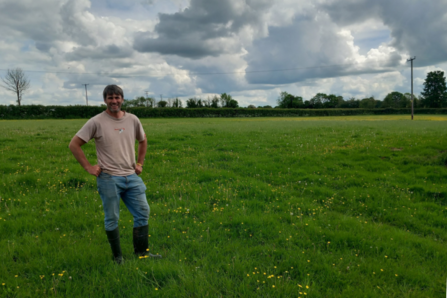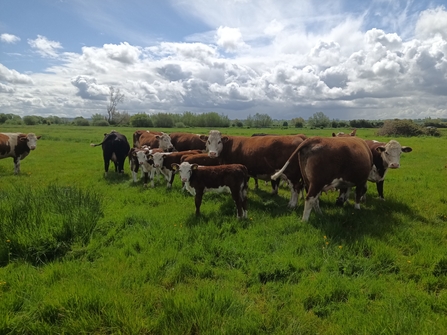Joe Stradling is one of the landowners signed up for the Development Phase of the ELMS Adapting the Levels Landscape Recovery Project. Thibaud Sulzer is Community Engagement Officer for the Adapting the Levels Landscape Recovery Project. Find out more about the project here.
TS: How did farming with your family begin?
JS: The family's been here in Cossington at Millmoot farm for 120 odd years. I’m the fifth generation. The sixth is on the way in training and hopefully they’ll want to take over. The family moved up here from Culmstock in Devon, where they were farming before, but I don’t know the reasons why. They spent a couple of years in Burtle before coming here, as tenants to the lord of the manor. And then, in 1917, the last Lord died. All his lands were put up for sale and my great, great granddad bought the farm with his son. Over the years, we've added bits of land to that farm, mainly in a ring-fenced block. And the most recent acquisition was about two years ago.
In 1998 Dad decided to become a certified organic farm. It didn’t require us to make too many changes because we were already largely organic, like many other traditional farms around here, but a certification meant you could get higher milk prices. Dad gave up dairy in around 2000 and focused, primarily on forage sales, with Stewardship options, now the primary earner is organic beef herd, very closely followed by subsidies. What I do like about our farm is we aren't focused on sole thing. We have the beef sales, we still have the forage sales, we’re lucky enough to have a couple of barn conversions rented out, which are part of the farm businesses, and we have subsidies. So we've got income from a couple of different sources, some of which provide a more consistent income than others, namely the rental properties. On top of that, we’re not big users of electric and we only use our own manure as fertiliser, so we haven’t been financially affected too badly, as some others have been.



